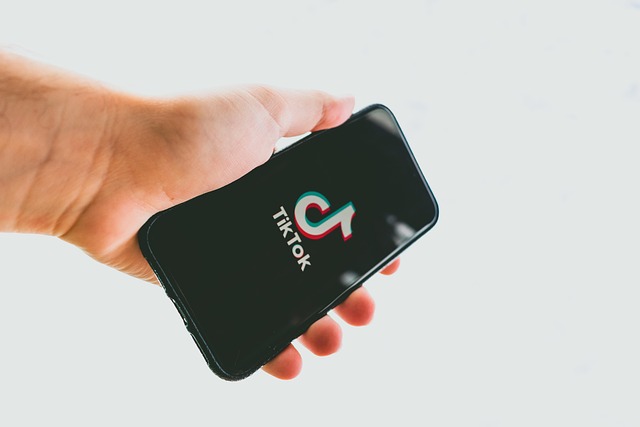In the past decade, the way people form, maintain, and dissolve personal connections has shifted dramatically. What once required face‑to‑face meetings or written letters now often begins with a notification on a smartphone or a status update on a platform. The phenomenon of online relationships—interactions that rely on digital communication rather than physical presence—has become an integral part of everyday life for millions worldwide. While these connections can bring new opportunities and broaden social horizons, they also pose distinct challenges that deserve careful examination. Understanding how social media shapes the dynamics of online relationships is essential for individuals, families, and societies aiming to navigate this evolving landscape responsibly.
How Social Media Shapes Online Relationships
Social media platforms function as complex ecosystems that enable rapid information sharing and continuous engagement. Their design encourages users to stay connected by providing instant feedback mechanisms such as likes, comments, and shares. As a result, online relationships are often reinforced by frequent, brief exchanges that may never translate into deeper emotional bonds. The algorithms that curate content also play a pivotal role; they prioritize posts that elicit strong reactions, creating echo chambers that can either strengthen group identity or deepen social divisions.
Moreover, the accessibility of contact options—messaging, voice calls, video chats—allows relationships to span geographic boundaries effortlessly. This globalization of interaction has turned local acquaintances into global communities, yet it can also dilute the depth of understanding that comes from shared physical experiences. The constant visibility of others’ lives fuels comparison, shaping how people perceive themselves and their relationships in an online context.
Benefits of Online Relationships Fostered by Social Media
Online relationships offer numerous advantages that traditional face‑to‑face interactions may not provide. One key benefit is inclusivity: people who face mobility challenges, social anxiety, or geographic isolation can find companionship and support online. The asynchronous nature of messaging means that conversations can continue across time zones, offering flexibility that aligns with modern work schedules.
Social media also acts as a catalyst for niche communities, where individuals with uncommon interests or identities find solidarity. These communities provide resources, mentorship, and emotional validation, which can lead to stronger self‑esteem and empowerment. In addition, the ability to maintain long‑term friendships across years and continents is facilitated by digital memory—shared photos, posts, and memories stored online, allowing people to revisit moments and keep the bond alive.
Challenges and Risks for Online Relationships
Despite their many strengths, online relationships can also introduce risks. The lack of physical cues—tone, body language, facial expressions—can lead to misunderstandings. Without these contextual signals, messages may be interpreted in ways the sender never intended. Moreover, the ease of disconnecting from online interactions may foster superficial connections that lack emotional depth.
Privacy concerns are another significant issue. Social media platforms collect vast amounts of personal data, making it possible for third parties to influence user behavior. Identity theft, cyberbullying, and harassment are real threats that can damage the trust essential for healthy online relationships. Additionally, the constant exposure to curated images and lifestyle content can create unrealistic expectations, causing feelings of inadequacy that strain interpersonal bonds.
Psychological Effects on Users Engaged in Online Relationships
Research indicates that online relationships can both benefit and harm mental health. On the positive side, the sense of belonging and social support gained through digital communities can mitigate loneliness and depression. The ability to receive instant emotional feedback can provide comfort during stressful times.
Conversely, the phenomenon of “comparison anxiety” arises when users benchmark their lives against others’ idealized portrayals. This can lead to negative self‑image and diminished life satisfaction. Furthermore, the fear of missing out (FOMO) drives compulsive checking of notifications, disrupting sleep and work routines. These psychological challenges highlight the need for digital literacy and self‑regulation strategies to maintain healthy online relationships.
Digital Etiquette and Communication Norms
As the lines between personal and public space blur on social media, the importance of digital etiquette grows. Clear guidelines—respecting privacy, mindful language use, and thoughtful engagement—help preserve trust. Consistent and honest communication fosters deeper connections, reducing the risk of misinterpretation.
Time management is another crucial aspect. Setting boundaries for online interaction, such as limiting screen time during meals or before bed, promotes real‑world engagement. The practice of active listening—responding thoughtfully, asking clarifying questions, and offering empathy—transfers the quality of in‑person conversation to the digital realm. Finally, acknowledging cultural differences in communication styles ensures that online relationships remain inclusive and respectful.
Future Outlook: Trends Shaping Online Relationships
Looking ahead, several trends are poised to influence the trajectory of online relationships. Advances in augmented reality (AR) and virtual reality (VR) promise more immersive social experiences, allowing users to interact in virtual spaces that mimic physical presence. Artificial intelligence (AI) chatbots and personalized content curation will continue to shape how individuals discover and maintain connections.
Meanwhile, growing awareness of data privacy and digital well‑being is driving the development of platforms that prioritize user control over content and interactions. These innovations may create more authentic online relationships by reducing manipulation and fostering genuine human connections.
In conclusion, online relationships forged through social media are a double‑edged sword. They democratize social interaction, offering unprecedented connectivity and support across distances. At the same time, they introduce new layers of complexity—miscommunication, privacy concerns, and psychological strain—that require conscious navigation. By embracing digital etiquette, cultivating self‑awareness, and advocating for privacy‑respecting technologies, individuals can harness the benefits of online relationships while mitigating their risks. The ongoing evolution of social media will continue to shape how we relate, and it is incumbent upon all of us to steward these connections with care and intentionality.




